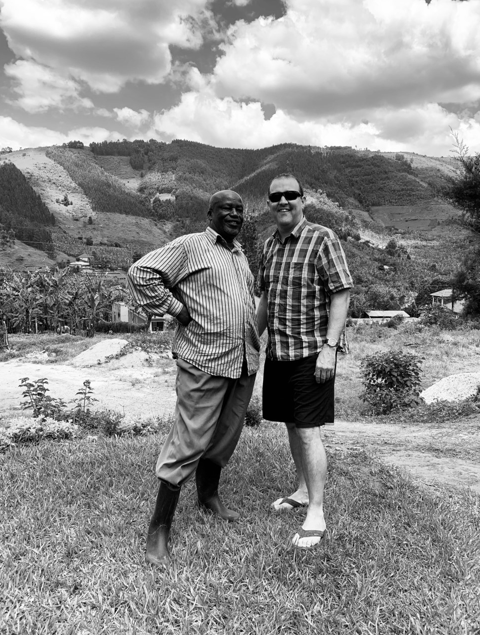York's University's Department of Anthropology (Faculty of Liberal Arts & Professional Studies) welcomes Associate Professor and anthropologist Richard Vokes from the University of Western Australia to talk about new developmental cultures in Uganda and east Africa on Thursday, November 10 at 2:30 p.m. The seminar will take place in Kaneff Tower, Room 626 on the 6th Floor.

Recently, the Government of Uganda has embarked on the largest road building programme in the country’s history. Among the 8000km of new highways being constructed, with all kinds of new development finance, is the world’s most expensive road: the (Chinese-funded) Kampala-Entebbe Expressway. For the government, this public works programme is justified in terms of its wider economic aspirations for Uganda to achieve middle-income status by 2040, and to eventually become ‘the Dubai of Africa’. Following a major programme of political advertising, such technocratic aspirationalism has become almost infectious among the Ugandan public, and has become a source for political mobilisation in its own right. However, as my multi-year ethnographic study of one of the country’s largest highway projects – the Mbarara-Kabale Road (MKR), in South-western Uganda – shows, for people living alongside these construction projects, their experiences are more often characterized by all kinds of socio-political disruptions, including the reordering of their living worlds. For these people, official aspirationalism may be also tempered by social memory. After all, it was along the very thoroughfare on which the new MKR sits that in the past: criminal gangs have mobilized; armies have marched and met in battle; and the HIV/AIDS and Covid-19 epidemics have travelled. The main aim of this paper is to explore how people work out these contradictions. It will show that one response has been for people to form collectives to build their own, alternative ‘roads’. The practices of these collectives in some ways mirror those of the national highway schemes. Yet in other respects, they re-order economic, social-political, and living relations, and engage social memory, on their own terms.
All members of the York University community are welcome to attend this event. No registration is required. Seats are limited on a first come first serve basis.
